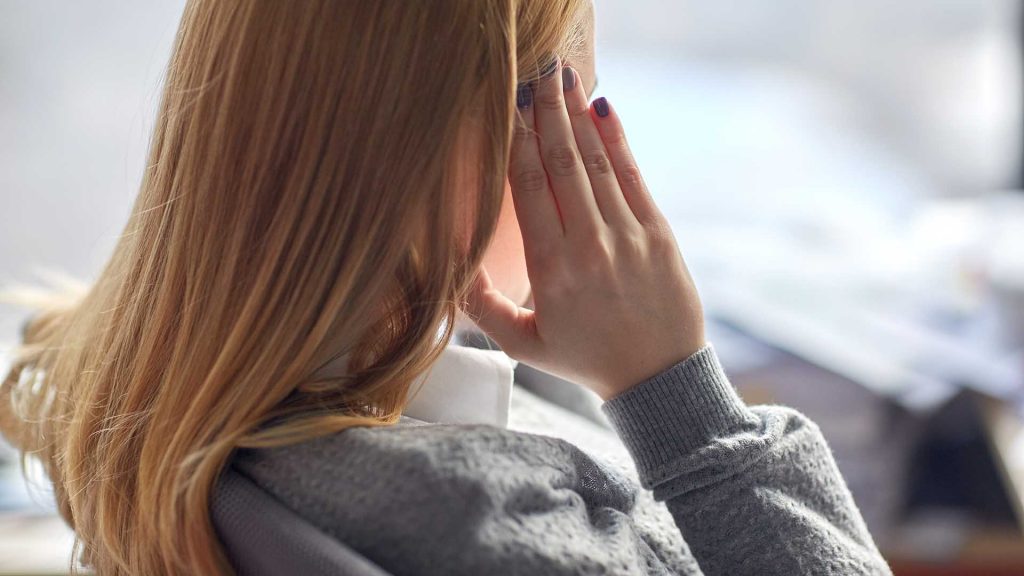Many individuals are scared of quitting alcohol because of what may come after (and by “what may come after,” we mean withdrawal symptoms). But as long as you’re prepared for what can happen, you can equip yourself with the tools you need to have a more comfortable detoxing experience.
One thing to know before stopping drinking is that headaches are extremely common. However, since thousands of people suffer with headaches daily, there are many ways to combat this symptom and make it through to continue with your recovery journey.

The Basics of Alcohol Dependence
Alcohol consumption turns into dependence when drinking starts interfering with your career, relationships, and other aspects of your everyday life. It is very easy to build this tolerance and dependence, seeing as alcohol is a highly-addictive depressant.
When the central nervous system gets used to having alcohol around, the brain receives messages and produces extra chemicals. If you stop drinking suddenly, your brain is still producing those chemicals and can become overstimulated. This is where all withdrawal symptoms stem from.
Starting Over With Sobriety: The First Steps
If you are used to drinking regularly or frequently, stopping can be a little bit of a shock to the system. But all it needs is a little bit of time to readjust.
If you drink heavily, withdrawal symptoms like headaches will start to begin about 12-24 hours after you stop. How long these symptoms last and how severe they are depend on a variety of factors including your age, weight, how much you drink, what you drink, etc. But on average, withdrawals and headaches can last for about one week after quitting.
So what actually happens to you during this process?
What Happens to Your Brain When You Start Recovery
Let’s start with the brain. When you stop drinking after the brain gets used to alcohol, it can get a little frazzled. You may experience:
- Difficulty thinking clearly
- Anxiety or depression
- Bad dreams or hallucinations
- Jumpy or nervous feelings
- Irritability and mood changes
Additionally, your body may go through some changes as well.
How Does Your Body React When You Stop Drinking?
If you quit suddenly, your body might not know how to react. Here are some of the most common physical symptoms of withdrawal:
- Clammy skin
- Shakiness
- Fatigue
- Appetite loss
- High blood pressure
- Nausea & vomiting
- Sweating
- Seizures
- Headaches
So can you expect headaches when you stop drinking? Most likely, unless you don’t drink heavily enough to experience any type of withdrawal.
Headaches As A Withdrawal Symptom
It makes sense that headaches are such a common withdrawal symptom. Think about it: your whole body is working at once to get back to normal. It’s natural for your head to feel a little fuzzy and off-balance.
For example, some people drink alcohol as often as others drink coffee. If you skipped your daily cup of coffee, you would probably get a headache too. The system is completely disrupted when someone stops consuming anything the body is used to, so it may take a little time.
How to Get Through Withdrawal
Fortunately, the withdrawal and headaches do end. If your symptoms are severe, you may have to undergo withdrawal and the rest of detoxing in a rehab facility. But if everything is mild, you may be able to do it at home.
If you suffer headaches during withdrawal, make sure to stay put in a quiet place with soft lighting. Eat healthy food, drink lots of fluids, and take mild over the counter pain medicine if your doctor allows it.
Sticking With Sobriety
While the headaches and other symptoms may be a pain, you will begin to feel like yourself again soon. Continue your recovery journey by surrounding yourself with support and attending therapy or group meetings.
To learn more about what to expect after stopping drinking, contact our team of substance abuse professionals by calling 267.209.7313.



